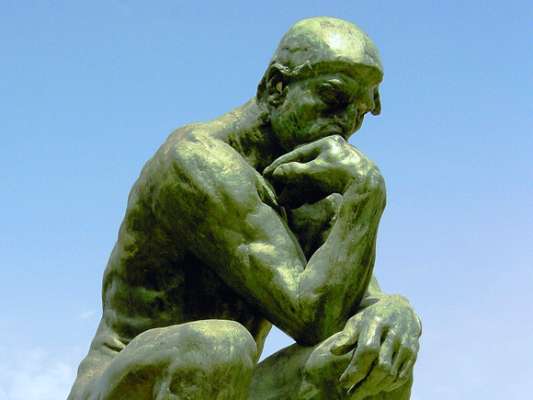Sudhanshu Sarangi
In casual conversations, intellectuals are easily dismissed as pedantic, pompous and inconsequential. After all, very few of them rise to the stature of worthy Public Intellectuals, who can be gate-keepers of society’s collective conscience and moral compass. ‘Anti-intellectualism’ can be fashionable in some societies, while countries like the United States continue to rule the world, as much because of their ‘soft power’ that fosters new ideas and disruptive innovations on a sustained basis.
After the collapse of Communism in Russia and Eastern Europe Francis Fukuyama proposed the ‘end of history’ hypothesis in 1992. Liberal democracies had triumphed after nearly a century of deep ideological conflict.If new ideas were no longer required, there was no apparent need for an intellectual class that makes a living out of debates? Inconvenient questions were not required to be asked and intellectuals were expected to be laid back, be a part of the leisure and entertainment industry, minus of course the need for scientific progress. However, by mid-90s, Sam Huntington was talking about ‘clash of civilization’, beyond which many cultures were embroiled in severe internal conflicts. The homogenising effect of westernisation was being challenged by Islamism. Ancient civilizations like India and China, while becoming global players, had not given up their unique authenticities.
The end of cold war and bitter ideological divides had allowed free run to centrist and moderate politics. By now Western democracies are grappling with two trends. On the one hand there is the rise of far-right political formations, with pronounced white supremacist tendencies. On the other, there are strong anti-immigration and anti-globalisation sentiments. US has elected Trump, Britain has voted for Brexit. French could somehow stop Marine Le Pen. Strong leaders have emerged in many countries like Putin in Russia, Xi Jinping in China, Erdogan in Turkey, Orbán in Hungary. There are now newand powerful technologies like the Social Media to manipulate public opinion. In a ‘post-truth’ world the line between truth and lies have blurred at the mass level. Two Harvard Political Scientists, Levitsky and Ziblatt have recently written about ‘Why democracies die?’So, the utopia of end of ideological conflict has not materialised.
After being appointed Prime Minister of Italy in 1922, Mussolini ordered fabrication of a respectable doctrine for fascism. A Philosophy Professor from the University of Rome, by the name Giovanni Gentile, was engaged to retro-fit an ideology to the reality of the times. Gentile became a Minister and used prevalent prejudices and fears to legitimise Fascist rule. Not merely ruling establishments, even the opposition can also find ideologues, who work with the hope of replacing current group of courtesans in the event of a power shift. The challenge, therefore, is to find a balance between the two extremes of becoming party ideologues or living in splendid irrelevance.
A thriving intellectual tradition would require a few pre-requisites. First, there must be a general consensus of some moral norms that are above policy disputes, for example, speaking the truth, respect for the law. Second, institutions and individuals need to restraint themselves from abusing power; the best written constitution can become dysfunctional without forbearance. Third, individuals and institutions engaged in intellectual pursuit need to be financially independent, paid for mostly by citizens. Fourth, politics should not become ‘war by other means’ as the structures that are meant to be ‘neutral’ are rendered ineffective when extreme partisanship takes over. Debates between ‘truth’ and ‘lies’ or between ‘less lies’ and ‘more lies’, may be fair, but cannot be dignified as intellectual.
Noble laureate William Faulkner once declined a dinner invitation from President Kennedy saying “Why that’s a hundred miles away. that’s a long way to go just to eat.” There is no compelling reason for persons in academia, literature and art to hobnob with people in power. Political dis-enfranchisement over generations can build a mystic around power and even intellectuals may unnecessarily seek companionship of powerful people. The ability to stand up rather than crawl is what brings admiration for public intellectuals, not abject surrender.
The impediments to rich traditions of intellectual activity are overcome when society jealously guards free thinking in various direct and indirect ways. People turn up in large numbers to listen to serious speakers. They indirectly finance intellectual activities by buying books, magazines, newspapers. In turn, these public intellectuals mount sharp critiques of the establishment through writings, satire and humour, works of art, cinema, and plays. Those in power cannot ignore these criticisms and have to reason out. So, basically two factors are essential for sustaining a culture of informed debate and rich knowledge-industry. First is public participation and support. Second, institutions of higher learning, research, professional bodies, media etc. or in short, the ‘knowledge infrastructure’ keep producing intellectual giants from time-to-time. These thought leaders, then, stand up to any form of bullying. In them, various ideas in society find credible and robust expression.
When a society faces a crisis, there are significant ‘social causes’ that intellectuals can espouse and find larger acceptability. For example, the Odia language movement gave the state tallest of public intellectuals, who are followed to this day. Freedom movement was also led by people with greatest of intellectual calibre. But, not all generations will face extra-ordinary historical situations. The only way to foster a robust intellectual culture is for the knowledge infrastructure to deliver in normal times. On their part, public intellectuals should be familiar with current ideas in the world and not be looking back in times all the time. The generations growing up with deluge of information, ‘Ted talks’ and ‘Social Media’ cannot be easily impressed unless intellectual activities are of comparable global standards. To begin with, educated people should be less unmindful of society’s intellectual decay and not encourage’anti-intellectualism’ emerging as a desirable trend.
The writer is an IPS officer, views are personal.
This is an unabridged version of the article carried on the May 11, 2018, edition of Orissa POST.
